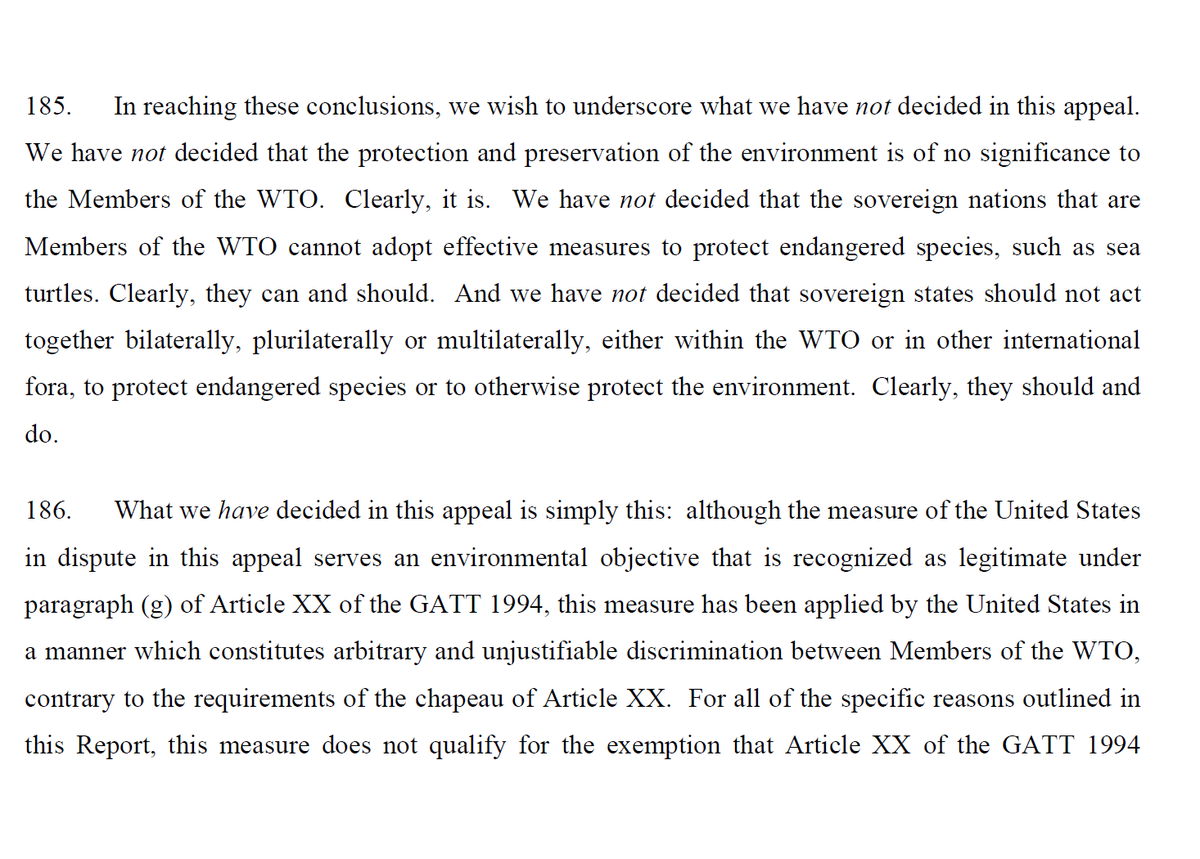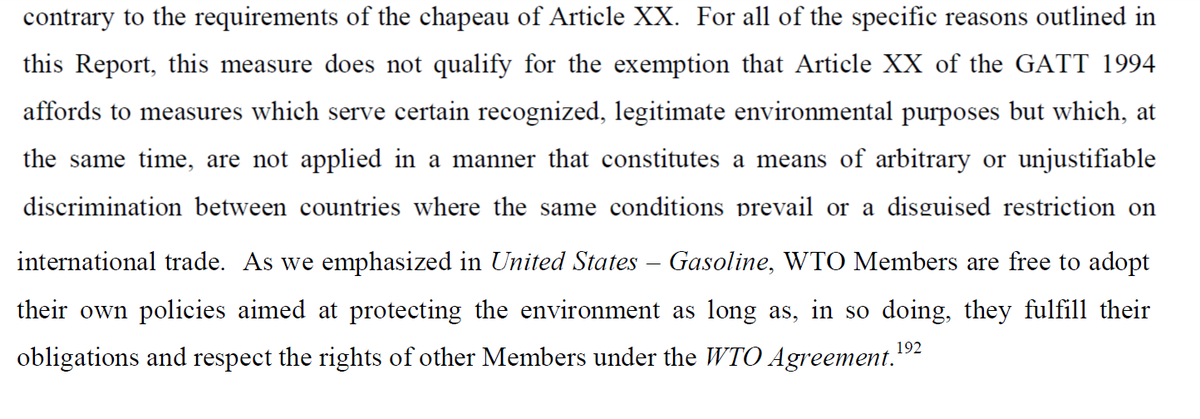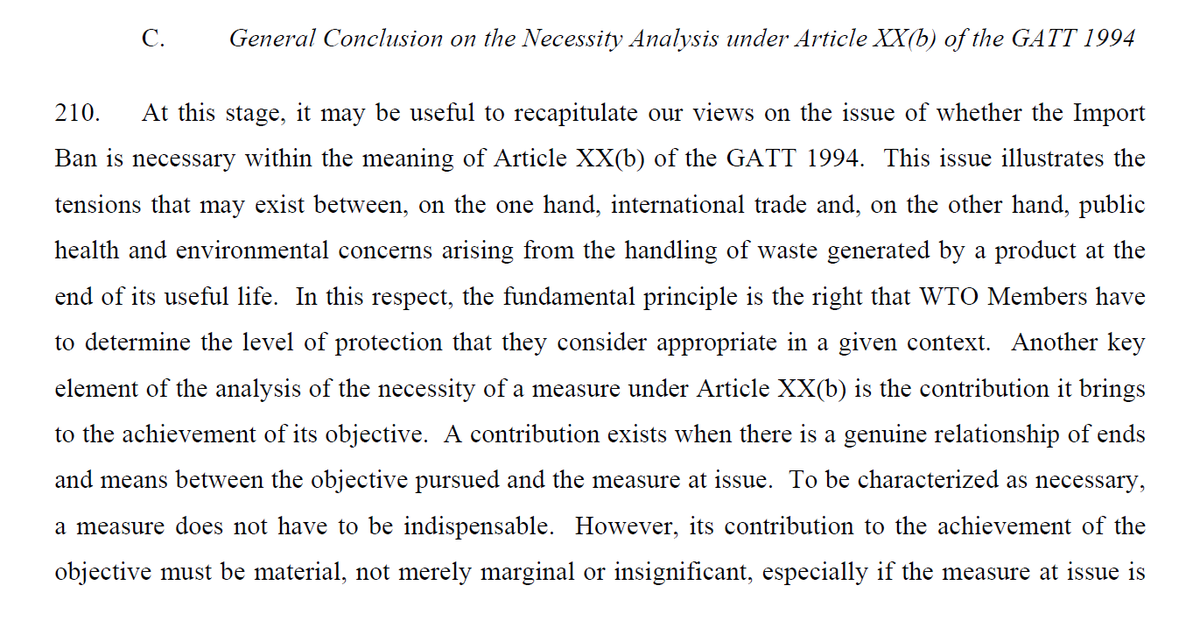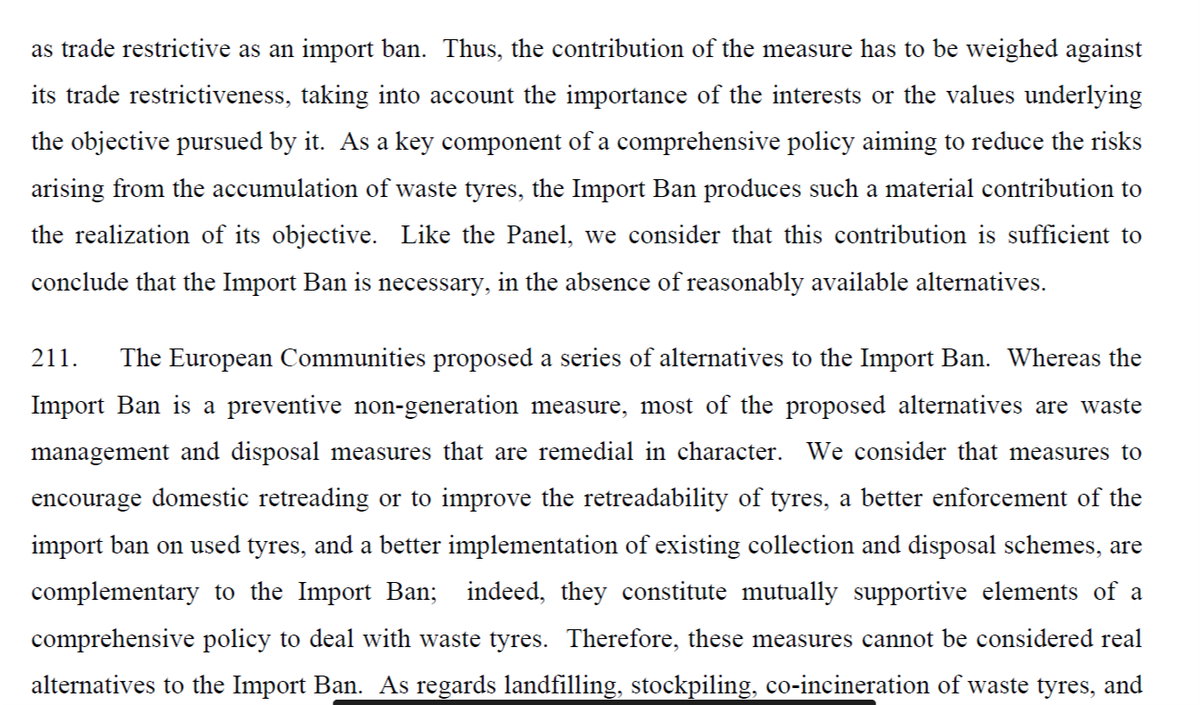 I have just spoken to a few students about Trade and Environment, an area that continues to draw a lot of interest but that is also plagued by old misunderstandings. So here's a thread clarifying the current 'relationship between trade law and the environment' in the WTO. 1/
I have just spoken to a few students about Trade and Environment, an area that continues to draw a lot of interest but that is also plagued by old misunderstandings. So here's a thread clarifying the current 'relationship between trade law and the environment' in the WTO. 1/
First of all, the GATT has no environmental exception. The reason: it was drafted in 1947. This is long before Stockholm 1972 and Rio 1992 set up the contemporary understandings of environment and sustainability. Yes, international acknowledgment of these issues is just 50 yo! 2/
So, why can't your paper just propose to add an environmental exception to the GATT? Because we already have it de facto. Since the 1998 Appellate Body report in US - Shrimp, it is clear that Members are allowed to adopt environmental measures with extraterritorial impact. 3/
What is more, the 'necessity' threshold for genuine environmental measures is quite low. Since Brazil - Tyres, we know that even highly trade-restrictive measures are WTO-consistent if the Member adopting them can show they make a contribution to a highly important objective. 4/
And it does not have to be the only or even the main contributing measure. A marginally helpful measure is WTO-necessary unless there is an alternative measure that does exactly the same thing to at least the same degree. So less environmentally-friendly measures will never do.5/
But wouldn't it be helpful to add an environmental exception? Well, it could generate nice photo-ops & good press for the WTO and its Members. But not very useful: judging from the actual case law, a truly helpful environmental measure will never be found to be 'unnecessary'. 6/
What is left, then, for 'greening' the WTO? First, where most environmental and other measures fail is at the non-discrimination test. Does your nice-looking prohibition on polluting vehicles feature an exception that suspiciously leaves out domestic producers? Does your carbon7/
tax feature exemptions that depend on certificates that can only be issued by your domestic authorities? Then not only is it protectionist but it will probably make a very dubious contribution to that environmental objective. 8/
The point: if you enact an environmental policy that is genuinely helpful and non-discriminatory, WTO rules will not stand in the way. Some people seem never to have gotten over the GATT era US-Tuna report . It was entirely reversed by the Appellate Body in US-Shrimp in 1998. 9/
What is left, then, in order to 'green' the WTO? First, you may take issue with non-discrimination. Maybe, to make a carbon tax politically acceptable, the price to pay is that locals feel that it protects them from foreign competition (or 'creates green jobs at home'). Maybe 10/
governments will be unable to pass a 'green subsidy' if politicians and people see the money going straight to foreign producers (economists think this is a wrong way of looking at things, but they don't have many votes). 11/
Should discrimination be tolerated to ensure political buy-in for green measures? This is an uncomfortable question, but is what you have to ask if you want to go beyond the actual WTO jurisprudence rather than some vague notion that trade rules are somehow anti-environment. 12/
Second, WTO rules /allow/ Members to take green measures, but don't /require/ it. Free trade agreements increasingly (if still timidly) do. What kind of positive measures can you demand from states? Can you convince India, Brazil or South Africa that these are not just ploys 13/
by developed countries to protect their industries and agricultural sectors? Uncomfortable as it may be, developing countries are usually the ones suspicious that 'green' measures are just cover for measures that discriminate against their exports. 14/
Finally, there is always the claim that economic production itself is the problem. From this viewpoint, the only way to 'green' the economy is de-growth. Because genuine trade integration promotes economic growth, there would be no way to make integration 'green'. 15/
The latter view is harder for lawyers to weigh in on. It's a matter for environmental economists whether there is genuinely green growth, and for politics whether the world produces enough stuff and should go back a few squares. My own suspicion is that it would be easier to 16/
convince people to transition to green growth than to convince them to abandon economic growth (even setting aside the cooperation problem - what if Nigeria wants to continue growing? Do Nigerians also have enough stuff? Would you live in the 1920s version of your country?). 17/
So these three critiques - against the non-discrimination principle, for positive environmental obligations and against economic growth itself - seem defensible. What is unwarranted is to rely on outdated ideas and law because it's easier than addressing the actual issues./


 Read on Twitter
Read on Twitter





